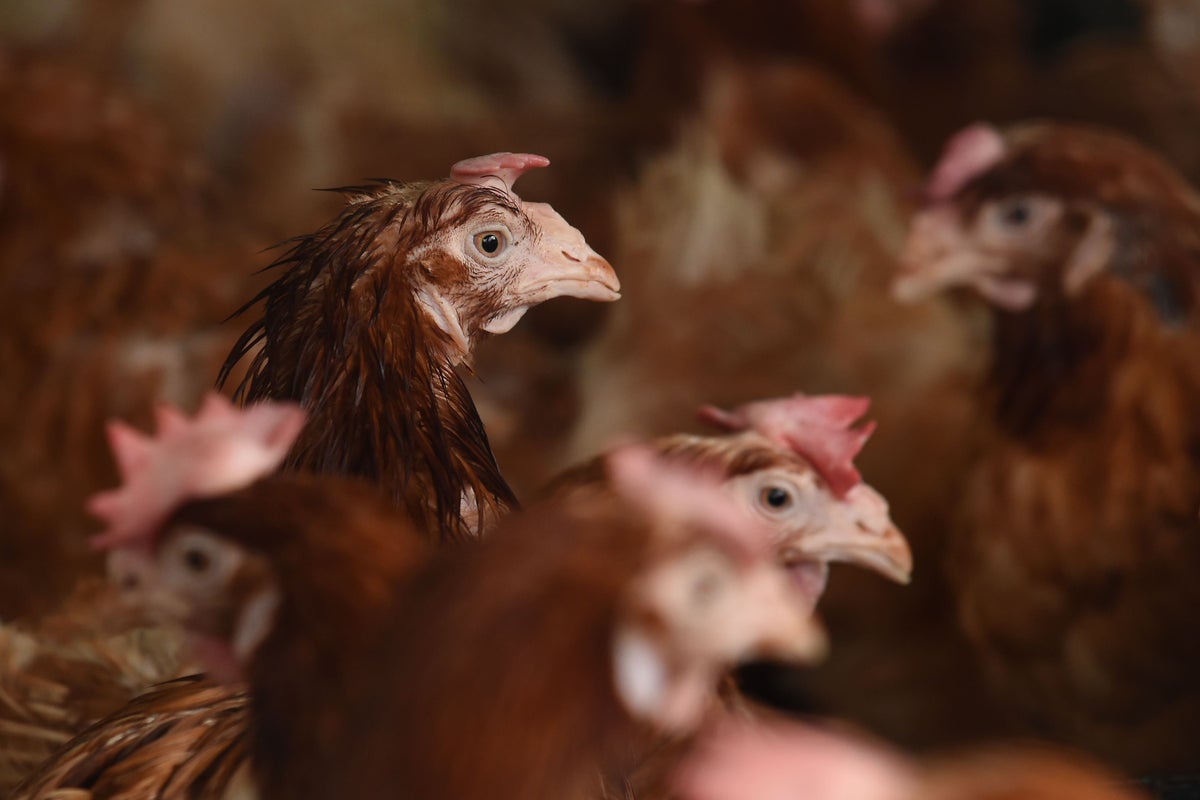
Dutch authorities are set to cull approximately 71,000 chickens at a northern poultry farm after a bird flu outbreak was confirmed, the government announced on Tuesday.
This incident marks the first detection of avian influenza in the Netherlands since March.
While a nationwide indoor poultry mandate has not been imposed, with officials stating the current outbreak does not necessitate such a measure, an expert group on animal diseases is scheduled to convene shortly to evaluate the risk.
It comes amid a seasonal upturn in the disease around the world.
Just days ago, a flock of ostriches in Canada that were set to be culled, after two dead birds tested positive for avian flu, were granted a stay of execution from Canada’s highest court.
Canada’s Supreme Court issued an order granting an “interim-interim stay” of a culling order.
The Canadian Food Inspection Agency late last year ordered about 400 ostriches to be killed. Since then, Universal Ostrich Farms in Edgewood, British Columbia, has fought the order.
It has lost multiple lower court rulings but has won some powerful supporters in the U.S. who have launched a campaign to stop the cull.
Mehmet Oz, U.S. Administrator for the Centers for Medicare & Medicaid Services, offered in August to house the birds to study them. U.S. Health Secretary Robert F. Kennedy Jr has also argued against the cull.
The culling had been scheduled for later on Wednesday, the farm’s lawyer Umar Sheikh told Reuters.
He said he was “obviously very, very happy” with the order, but emphasized this is “a very uphill battle” and “this is just a very short, temporary breather.”
In the motion for a stay of the cull order, co-owners Karen Espersen and Dave Bilinski included an affidavit from a University of British Columbia professor arguing the ostriches have immunity to avian flu.
The farm, whose owners say they specialize in studying ostrich antibodies, had argued culling the birds would cause “irreparable harm” and “permanently destroy unique genetics and a specialized research‑based business.”
The ostriches’ reprieve could be short-lived as the court has yet to determine the ostriches’ fate.
The food inspection agency maintains custody of the birds and has until October 3 to file its reply to the farm’s application to the Supreme Court. The court said it will deal with the case on an expedited basis.
In a statement Wednesday evening, the food inspection agency said it will comply with the stay order.
It said its “stamping out policy” plays a critical role in animal disease control and that it is working with police “for onsite security and follow up on ongoing threats of violence and death by apparent supporters of the ostrich farm.”
A severe bird flu outbreak in recent years resulted in millions of chickens, turkeys and other birds being killed in the U.S. to contain the spread of bird flu, which can infect humans and is fatal in poultry. The cullings contributed to egg prices at U.S. grocery stores climbing to a record high. Smaller commercial poultry flocks have been eliminated in Canada.
Last month, Poland reported an outbreak of highly pathogenic H5N1 bird flu on two poultry farms in the north of the country.
The virus was detected on a goose farm and a turkey farm in the town of Susz, and killed around 4,000 birds, the Paris-based WOAH said, citing a report from the Polish authorities.
Poland last week signed an agreement with China with the aim of restarting poultry trade halted since a previous wave of bird flu in the past year.
